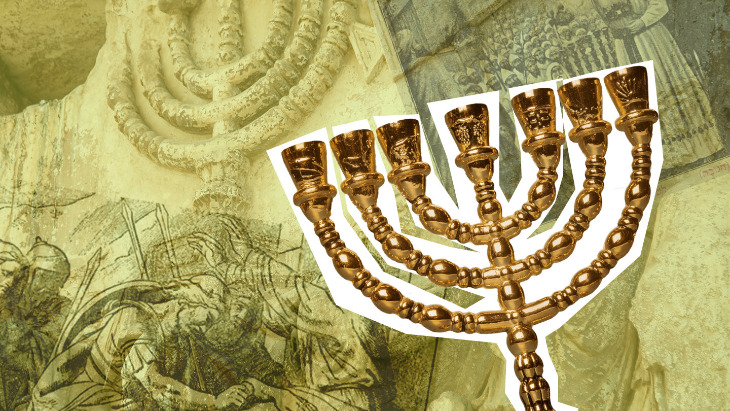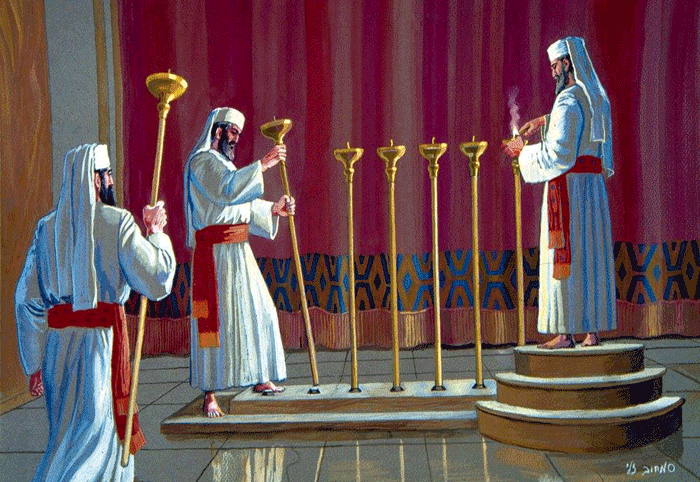Hanukkah, also referred to as Ḥanukka, Chanukah, or the Festival of Lights, is a pivotal Jewish holiday commencing on the 25th day of Kislev, usually aligning with December in the Gregorian calendar, and celebrated over eight days. This festival is a profound reassertion of Jewish faith and values, principally honouring the rededication of the Second Temple in Jerusalem. The ritualistic lighting of candles marks each day. Despite its absence in Hebrew Scriptures, Hanukkah has evolved into a widely celebrated and deeply cherished observance in Jewish tradition.
- Blogs
- General Knowledge
- Hanukkah The Festival Of Lights Dedication 658132ef14e5bf000128e33f
Hanukkah: The Festival of Lights & Dedication
General Knowledge • 19 Dec, 2023 • 56,781 Views • ⭐ 3.0
Written by Shivani Chourasia

Historical Context of Hanukkah

The festival of Hanukkah memorializes the victories of the Maccabean (Hasmonean) forces over the armies of Seleucid monarch Antiochus IV Epiphanes (175–164 BCE) and the consequent rededication of the Temple on Kislev 25, 164 BCE. The narrative, as told in I Maccabees, part of the Apocrypha, paints a vivid picture of Antiochus IV's invasion of Judaea, his efforts to impose Hellenistic customs on the Jewish people, and the desecration of the Second Temple. The Maccabees, led by Mattathias and his son Judas Maccabeus, stood out as the first Jews to fight for their religious convictions. Following their victory, Judas Maccabeus orchestrated the cleansing and rededication of the Temple, establishing an annual eight-day celebration of this event.
The Menorah and the Miracle of Oil

Central to Hanukkah is the tradition of lighting the menorah, stemming from a miraculous event recorded in the Talmud (Shabbat 21b). According to the narrative, Judas Maccabeus found a small jar of oil in the Temple, just enough to last a day. Miraculously, this oil continued to burn for eight days. This event laid the foundation for the eight-day duration of Hanukkah. The debate between 1st-century scholars Hillel and Shammai regarding the procedure for lighting the menorah underscores the tradition's ancient origins.
Traditions and Practices of Hanukkah

At the heart of Hanukkah celebrations is the lighting of the menorah each night. The menorah, with its eight branches plus a spot for the shammash candle, is progressively lit, with an additional candle illuminated each night. The menorah, initially placed outside homes, is now lit indoors, and blessings are recited during the lighting. The Hanukkah observance includes several liturgical practices, such as daily Scripture readings, Psalm recitations, and the singing of specific hymns. Almsgiving is customary, and prayers, including the ʿal ha-nissim, are recited daily.
Alongside these religious observances, Hanukkah is celebrated with various secular traditions. Festive meals, songs, and games are commonplace. Foods fried in oil, such as latkes and sufganiyot, are enjoyed in remembrance of the oil miracle. Children are given presents, including Hanukkah gelt, often chocolate coins. The dreidel game is a popular children's activity, symbolizing the miracle of Hanukkah.
Observance of Hanukkah in Israel

In Israel, Hanukkah is more than just a religious observance; it is a vibrant national celebration deeply interwoven with the country's cultural and historical identity. The festival is marked by a series of unique traditions and customs that reflect both the historical significance and the contemporary spirit of the holiday.